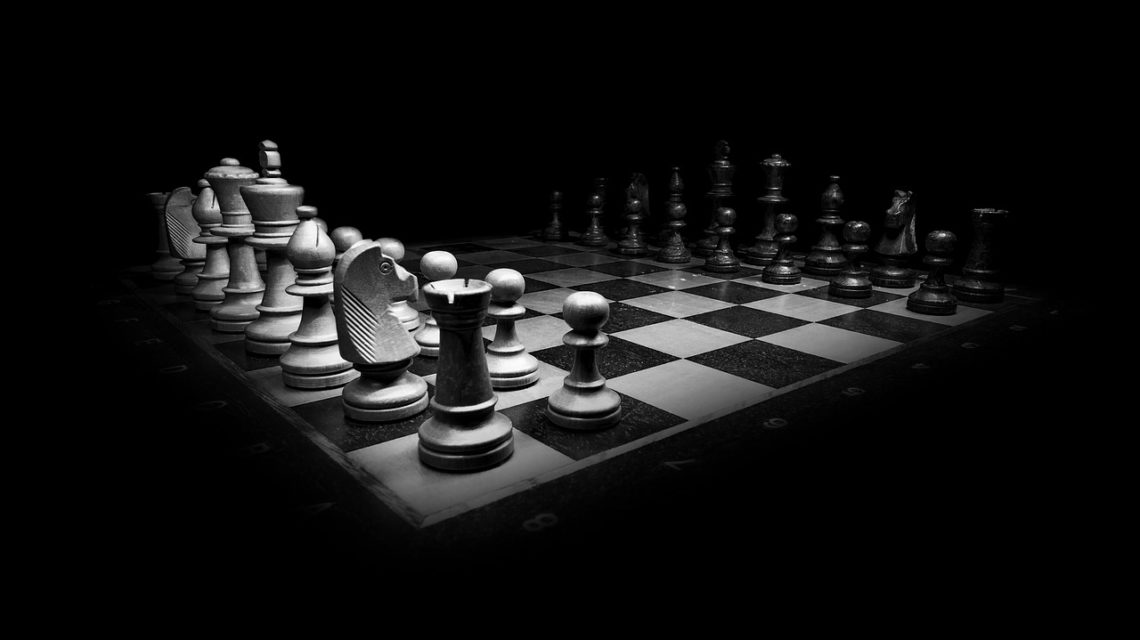by Kayley MacGruder
There are debates all around the world on why chess is not a sport. I will tell you why it is. “Chess is an affiliate member, or fully recognized by, National Olympic Committees in 117 countries, and chess as a sport is recognized in 107 countries.” This is a line from an article written by FIDE, or Fédération Internationale des Éches which is the World Chess Federation. Many people state that there is no physical exertion, thus chess is not a sport. What they don’t consider is that your brain needs just as much training as your muscles do. Chess players are treated just like any other athletic person when it comes to sportsmanship and behavior on the playing area. Just like other sports such as American football and Major League Baseball, chess is a ranked system of players. Chess is not only a global sport, but it brings people of all backgrounds, ages, ethnicities, and wealth together. For example, Major League Soccer remains a successful sport while also holding the title for the most diverse sport in North America. [1] Just like other sports all around the world, when it comes to chess, it doesn’t matter how old you are, where you are from, or how rich you are. What matters is how you play the game.
People believe that in order for something to be a sport, there must be some sort of physical movement, such as running, or that you need training. SportAccord recognizes that sports can be mainly physical or mainly mental. [2] Other than your heart, your brain is one of the most important organs in your body. Without it, you cannot function, you cannot do anything. It is just as important to keep your brain in top shape, like your muscles. The best way to keep your brain healthy is to “train” it. Competitive chess players hire nutritionists and fitness coaches to keep them healthy. Polish Chess player Dr. Agnieszka Fornal, has a doctorate in physical education, specializing in sports nutrition, as well as a FIDE ranking of 2170 which would qualify her as a candidate master which is good [3] and Dr. Anna Kęska is a dietician, and has a background in sport nutrition. [4] Together they conducted a study to see if physical fitness helped with the intellectual capabilities of playing chess. They studied four different groups of kids aging from 8-19. The groups were then further divided by age; group one had children ages 8-10, group two had 11-13, group three consisted of 14-16, and group four had 17-19. Despite the differences in age, all the groups ended up having the same results. The more physically fit the children were, the better they were at chess. [5] Studies show, a healthy body is a healthy mind!
Chess is closely related to sports in several ways. For example, when it comes to behavior, chess players are penalized if they refuse to shake hands with their opponents. The ranked player system that chess has built has been adopted by several different sports, such as American football, baseball, and basketball. Hungarian-American physics professor Arpad Elo invented the Elo rating system which is used to determine your rank in chess. To get a FIDE rating, you need to do two things, pay for a federation membership and participate in a FIDE approved tournament. After the tournament ends, and the tournament director sends in the results, you will receive your rating. Once you have a secure rating, you will then be able to play with other members that have a similar rating to help raise your rank. In 1970, the World Chess Federation implemented Elo’s rating system. From there, the Elo rating system branched out to several different sports. Today, Major League Baseball, Intercollegiate Tennis Association, National Basketball Association, National Football League, National Hockey League, and more, all adopted a player ranking system based off Elo’s rating algorithm. FIFA is also planning on adapting to this system. Even online computer games such as Overwatch and League of Legends use a branch of the Elo algorithm. [6]
Most of the time, sports will be played with some sort of strategy. Chess is all strategy.
“Chess is infinite: there are 400 different positions after each player makes one move apiece. 72,084 positions after each player makes two moves apiece. More than 9 million unique positions from the third move. After the fourth move, more than 288+ billion different positions are possible. Many 40-move games on Level-1 can be achieved than the number of electrons in our universe…” -Chesmayne. [7]
Even the International Olympic Committee has recognized chess as a sport since 2000. Just like mainstream sports have awards, so does chess, World chess champions Magnus Carlsen from Norway, Vishy Anand from India, and Veselin Topalov from Bulgaria have all won the Sportsman of the Year award. [8]
When it comes to chess, players aren’t limited by how much money they have, their ethnicity, or their gender. Chess is a global game with very little limiting factors on who can play. Even people with physical and mental disabilities can play chess. Anyone has the ability to play. Professor Stephen Hawking used to play chess with his children, even with an advanced motor neuron disease. Chess players think only of your skill and talents when it comes to playing the game. If we embraced chess as passionately as we do other sports, the level of diversity in our lives would raise. Chess makes you think and that would improve your intelligence level.
Personally, I believe that there are many reasons that chess is a sport. I mentioned a few key points. Chess has been internationally recognized by many countries and even the Olympic committee. As a chess player, I personally have a level of respect for any chess player out there. I have met a variety of players at a variety of different levels. Chess is a very hard game, and I believe it qualifies as a sport.
References
[2] https://en.wikipedia.org/wiki/Sport
[3] https://pl.wikipedia.org/wiki/Agnieszka_Fornal-Urban
[4] https://www.meaclinic.pl/dr_anna_keska/
[5] https://en.chessbase.com/post/physical-fitne-of-young-che-players
[6] https://en.wikipedia.org/wiki/Elo_rating_system
[7] http://www.chess-poster.com/english/notes_and_facts/did_you_know.htm





